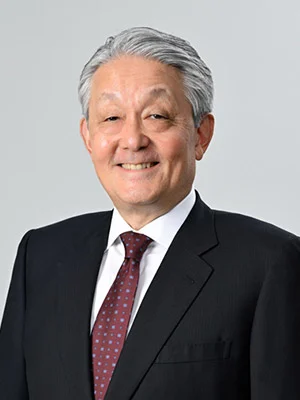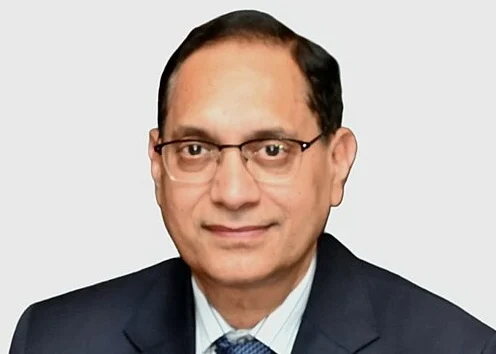French asset manager Amundi has pledged to put ESG at the heart of its investment process by 2021
With ETFs, the other big growth opportunity for fund managers is Environmental, Social and Governance (ESG) investing, also known as responsible or sustainability investing.
Amundi was one of the first in its field to embrace what is now widely adopted, having opened its ESG department in 2003.
Amundi currently has €280bn in ESG funds but committed in October to its 2021 Action Plan with the aim of strengthening its engagement in responsible investment across four main lines of action:
100% ESG (Environmental, Social, Governance) issuer rating, investment management and voting policy at general meetings comprising: Extra-financial analysis based on ESG criteria to be extended to all investment strategies; and ESG performance will systematically be taken into account by Amundi in its shareholder dialogue with issuers and voting decisions at general meetings.
To strengthen advisory activities for institutional clients to support them in their ESG strategies and implementing initiatives.
To double the amounts invested in initiatives related to the environment and with a high social impact, by increasing the volume of thematic funds to €20bn.
A stronger commitment to social businesses, by increasing the amounts invested in the social and solidarity economy from €200m to €500m.
Yves Perrier, the chief executive of Amundi, told Global Investor: “At a time when it becomes more and more necessary for corporates and investors to assume their responsibility towards society, a more globalised world, we have come up with an ambitious three-year action plan to strengthen our commitments.”
Perrier continued: “The explicit inclusion of ESG (environmental, social and governance) factors will be broad-based in the management of all the group’s funds within three years.”
Perrier said Amundi is the only asset manager to have committed to integrating ESG into all of its nearly €1.5tn of funds.
A challenge with ESG, given its prevalence in asset management, is distinguishing one manager’s strategy from that of its rival. The key is proprietary research.
Perrier said: “We have our own in-house ESG experts and ESG rating process. Also using external information providers, we give 5,500 corporates ESG ratings on a seven-notch scale from A to G. The ratings are reflected in investment ratings such as Overweight and Underweight as well as in screening investments.”
Perrier said his firm will be holding his individual portfolio managers to account on their ESG performance also.
“Within three years, every Amundi actively managed fund will be required to offer an ESG performance above their benchmark indices or universes' ESG rating. As for engagement with issuers also, our voting policy will systematically take into account global ESG performance,” Perrier said.
The man charged with implementing this strategy is Stanislas Pottier, the chief responsible investment officer at Amundi who joined the firm in May from Amundi’s parent company Credit Agricole where he had been global head of sustainable development since September 2011.
Pottier said Amundi wants to become the leading ESG manager: “Whether it is our institutional investors, retail investors or distribution partners who are new to ESG or who are mature and sharp on the issue, we want to be able to work with them to embrace ESG.”
He accepts many fund managers pay lip-service to ESG but says it is how firms apply ESG that sorts the men from the boys.
Pottier said: “We hear a lot about ESG integration but, by ESG integration, firms tend to mean they are making their ESG analysis available to their portfolio managers (PM). We have been doing that for years - all of our PMs already have access to our ESG data and analysis.
“When we say ESG integration, what we mean is that we will ensure the PMs use the ESG data and analysis across every asset class and fund. We will give every issuer an ESG rating and require every fund to be better than the relevant benchmark on its ESG profile.”
Pottier added: “ESG is prevalent but we have seen no other fund management firm that has made such fundamental changes to the way they conduct their business.”
Speaking to Global Investor less than two months after the ambitious 2021 Action Plan was announced, Pottier said work is already underway: “We have given ourselves three years to implement and deliver on these commitments. We are now in the process of verifying our approach and establishing how we tackle the ratings of every asset class and fund.
“We are currently engaging with the PMs and managers to cover what is ESG and what they need in terms of data and analysis. The PMs then are free to come-in underweight, overweight or to exclude issuers as long as they beat the benchmark.”
Other challenges are assessing the results of ESG investing and demonstrating these to investors.
Pottier said: “We have a proven track record in impact investing but the question is how do we incorporate that into ESG and not only in Private Equity funds focused on solidarity? We want to deliver dynamic rather than static impact analysis because institutional and retail investors alike want up-to-date reports on impact investing. We are experienced in analysing impact investing but we are still working on how we apply that across ESG more broadly.”
Part of the challenge is the definition of ESG is evolving quickly, which is to be expected given the field is no more than 20 years old.
Pottier said: “When we think about ESG, everyone has been focused on the E and this is legitimate given the importance of the environment and climate change. This is still a top priority. At the same time, there is an increased focus on the S, especially inequality, which has become one of the main issues in many economies. Social issues are key to economic stability but they are not easy to address.”
He added: “Governance principles are also well established but there may be other governance and ethical questions that could be better integrated into the approach to governance.”
Pottier understands from his time at Amundi’s parent firm the role specialised green products such as bonds and indices can play in the E part of ESG.
He said: “The green bond market has grown exponentially in recent years. Credit Agricole is a market leader in green bonds and Amundi launched in March the world’s largest targeted green bond fund focused on emerging markets.”
Pottier continued: “As one of the world’s largest passive investors, we believe that green indices also have a key role to play and we have targeted ESG investors with our MSCI ESG fund for example. Green indices are an interesting way of introducing ESG. Impact investing for example may not be the best solution for everyone and I believe there is enough liquidity out there to support multiple approaches.”
In keeping with the idea that ESG is evolving, Amundi has committed to “a positive approach to ESG screening”.
Pottier said: “Some investors tend to exclude whereas we may choose to engage with those companies. Voting at company Annual General Meetings (AGMs) is a big part of this new ESG approach and it is our ambition to vote more. We are integrating more ESG analysis into our voting policy and plan to become more vocal in our dialogue with issuer boards.”
An option for positively influencing corporate behaviour is to convince other shareholders to put pressure on the boards of the companies whose shares they own.
Pottier said: “We manage almost €1.5tn so corporates listen to us but there is some potential to align shareholders on voting principles to affect positive change.”
Pottier said Amundi’s approach to ESG is exemplified by its stance on tobacco, where it tries to engage with the firms’ boards to exert positive influence rather than putting these firms on an exclusion list.
“Most investors have excluded tobacco firms but we wanted to find another way between doing nothing or exclusion that allows us to apply positive pressure,” said Pottier.
“We rate issuers on ESG from A to G, with G being an exclusion but we have decided to cap tobacco firms’ ratings to E so we can apply pressure to the corporates and the PMs because we are convinced tobacco firms have to change but we know transitions take a bit of time to be conducted rightly.”
ESG is currently a buzz word in asset management but Perrier is right that Amundi has differentiated itself by making such an emphatic commitment to responsible investing.


